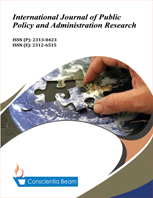The impact of corruption on auditor independence: The case of gifts and discounts
DOI:
https://doi.org/10.18488/74.v11i2.3711Abstract
This study investigates the correlation between auditors' acceptance of gifts and discounts (AGD) and the potential undermining of auditor independence, akin to bribery. Bribery usually encompasses the exchange of valuable items, such as money, gifts, or favors, in return for influence or favors. Both "gifts" and "discounts" have the potential to constitute bribery, depending on the circumstances. Therefore, in specific contexts, the giving or receiving of gifts and discounts might be viewed as bribery if their intention is to unduly influence someone's actions or decisions. This study comprises a final sample of 62 audit firms in Saudi Arabia. The simple regression results highlight a significant negative correlation between auditors' perceptions of accepting gifts and discounts, and their independence. The act of receiving gifts and benefits establishes a close tie between auditors and their clients, influencing auditors’ behavior. The study suggests that the higher the value of a gift or benefit, the more pronounced the threat to auditor independence. Furthermore, even minimal gift and discount arrangements have a significant impact on auditor independence. The insights gained from this study can be of substantial value to the accounting and auditing professions, audit firms, standards setters, and auditing regulators, fostering a deeper understanding of the degree to which gifts and discounts affect auditor independence.

